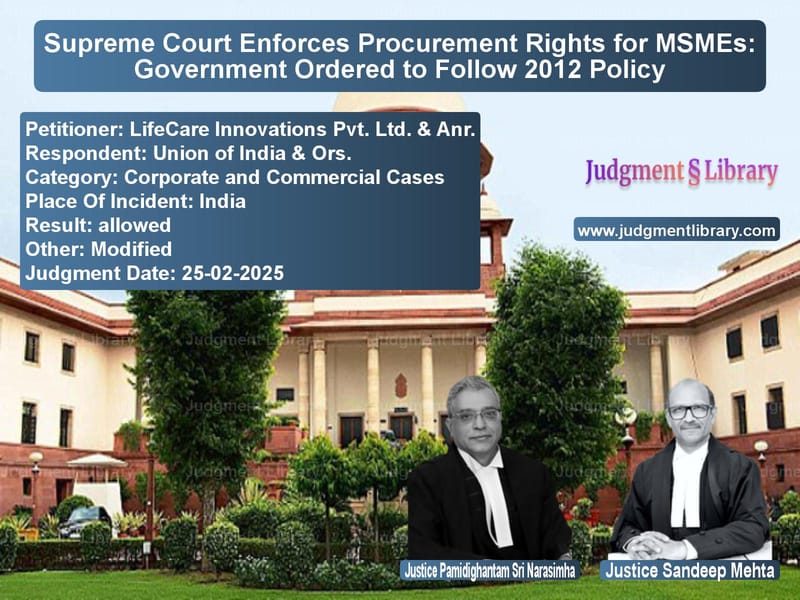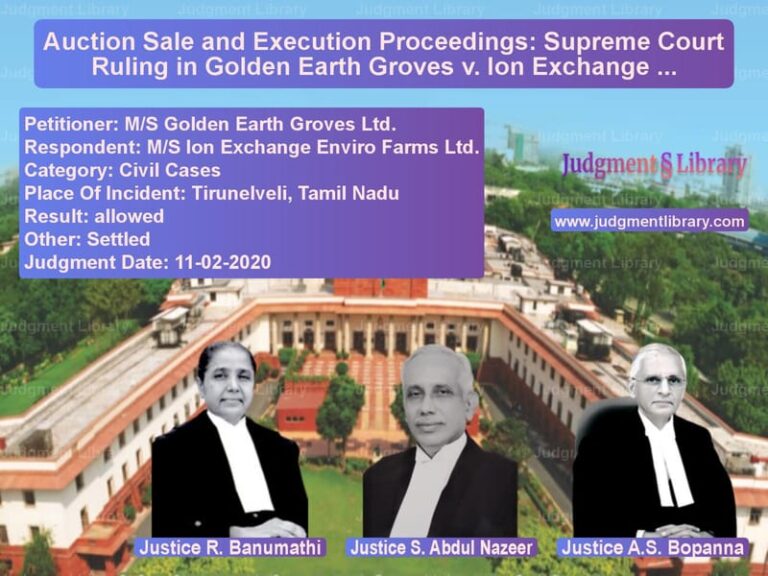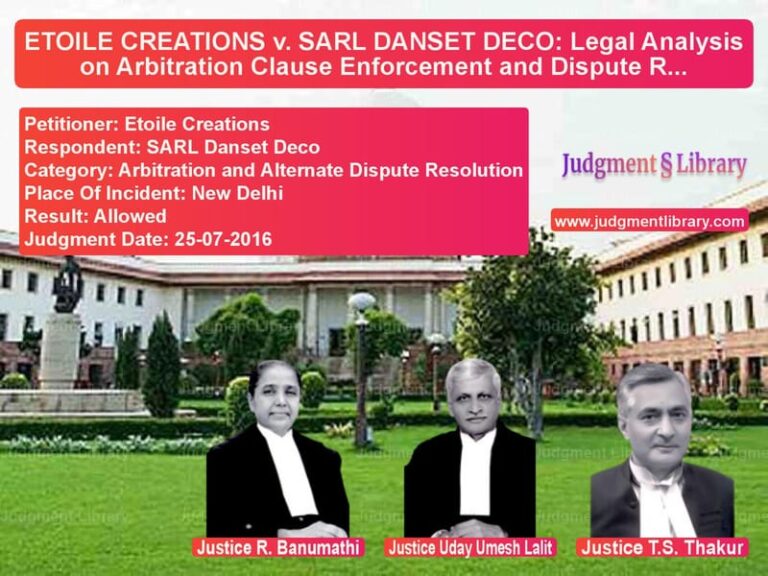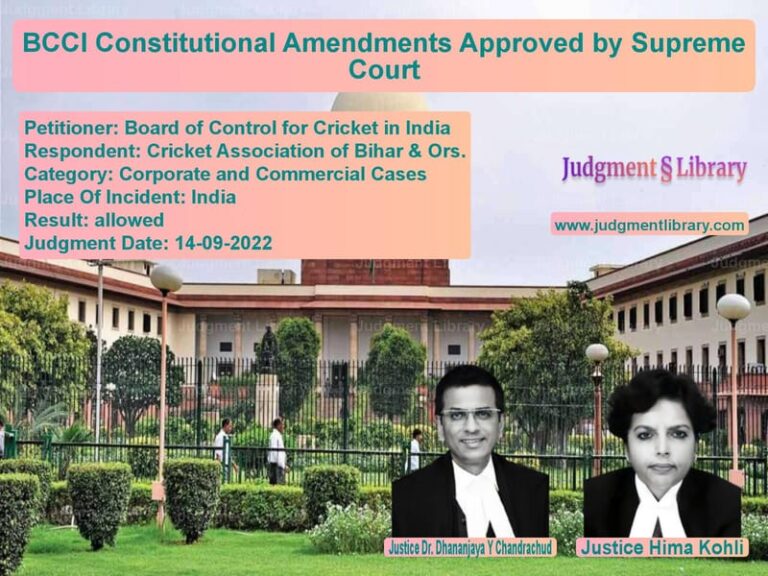Supreme Court Enforces Procurement Rights for MSMEs: Government Ordered to Follow 2012 Policy
The Supreme Court of India, in a landmark ruling, reinforced the rights of Micro and Small Enterprises (MSEs) in public procurement, ensuring that government agencies adhere to the mandatory 25% procurement target from MSEs. The judgment, delivered in the case of LifeCare Innovations Pvt. Ltd. & Anr. v. Union of India & Ors., directed authorities to strictly implement the Public Procurement Policy for MSEs, 2012, and take corrective action within 60 days.
Background of the Case
The case was filed by LifeCare Innovations Pvt. Ltd., a Micro Enterprise specializing in pharmaceuticals and medical biotechnology, along with its founder, Dr. Jitendra Nath Verma. The petition challenged the restrictive minimum turnover clauses imposed by government tenders, which prevented MSEs from participating in public procurement despite the existence of the 2012 Policy.
The petition raised two primary issues:
- Whether MSEs have a legal right to supply 25% of government-procured goods and services under the Procurement Policy.
- The legality of minimum turnover clauses in tender conditions that effectively exclude MSEs from government contracts.
Arguments by the Petitioners
The petitioners contended that:
- Despite the 2012 Procurement Policy mandating that 25% of government procurement must come from MSEs, many government departments and public sector undertakings (PSUs) circumvent this rule by imposing unrealistic financial eligibility conditions.
- Minimum turnover clauses, requiring bidders to have significantly high revenue, unfairly exclude smaller firms, violating Articles 14 and 19 of the Constitution.
- The government must be held accountable for implementing its own policy, ensuring that smaller enterprises can compete fairly.
- The Review Committee and Grievance Cell established under the Procurement Order 2012 must function effectively to address these issues.
“The implementation of the 2012 Procurement Policy must not be reduced to a mere formality. Government agencies are bound by law to procure from MSEs without imposing arbitrary financial conditions.”
Arguments by the Respondents
The Union of India and other government respondents argued:
- Procurement from MSEs has been increasing over the years, and the 25% target has been largely met.
- Turnover clauses are necessary to ensure financial stability and operational capacity of suppliers, particularly in sensitive sectors like pharmaceuticals.
- The tendering process is designed to maintain quality and efficiency in government procurement.
- The issue raised by the petitioner is contractual and does not warrant judicial intervention.
“Government tenders must ensure that suppliers have the financial and operational strength to fulfill large contracts, particularly in critical sectors like healthcare and defense.”
Supreme Court’s Observations
The Supreme Court made several key observations regarding the implementation of the 2012 Procurement Policy and the role of government agencies:
- The 2012 Procurement Order has the force of law, as it was issued under Section 11 of the Micro, Small and Medium Enterprises Development (MSMED) Act, 2006.
- The policy does not create an absolute ‘right’ for individual MSEs but mandates an enforceable duty on government agencies to ensure compliance.
- Minimum turnover clauses should not be used as a tool to exclude MSEs unfairly. They must be proportional to the value of the contract.
- The Review Committee and Grievance Cell under the 2012 Procurement Order must function effectively to address procurement-related disputes faced by MSEs.
“Government agencies cannot impose arbitrary financial conditions that undermine the intent of the 2012 Procurement Policy. The Review Committee must ensure proper enforcement and address grievances effectively.”
Final Judgment
The Supreme Court ruled:
“The Procurement Order 2012 has the force of law and must be implemented in letter and spirit. The Review Committee shall examine the issue of mandatory procurement of 25% from MSEs within 60 days and take necessary action. The Grievance Cell must assess the impact of minimum turnover clauses and issue guidelines to prevent their misuse.”
Specific directions were issued:
- The Review Committee must clarify whether the 25% procurement target is independent of the 358 items reserved for exclusive MSE procurement.
- Government agencies must justify any failure to meet procurement targets and report to the Review Committee.
- The Grievance Cell must investigate the impact of minimum turnover clauses and issue policy guidelines within 60 days.
- Annual procurement plans and reports must be published transparently to track compliance.
Impact of the Judgment
This ruling has far-reaching consequences for MSMEs in India:
- Ensures that government agencies cannot arbitrarily exclude MSEs from procurement opportunities.
- Strengthens enforcement of the 2012 Procurement Policy, preventing circumvention through financial criteria.
- Mandates government bodies to be accountable for procurement decisions.
- Provides a clear mechanism for MSEs to challenge unfair tendering practices.
By reinforcing the rights of MSEs and ensuring transparency in public procurement, the Supreme Court has taken a significant step toward empowering small enterprises and fostering a more inclusive economic environment.
Petitioner Name: LifeCare Innovations Pvt. Ltd. & Anr..Respondent Name: Union of India & Ors..Judgment By: Justice Pamidighantam Sri Narasimha, Justice Sandeep Mehta.Place Of Incident: India.Judgment Date: 25-02-2025.
Don’t miss out on the full details! Download the complete judgment in PDF format below and gain valuable insights instantly!
Download Judgment: lifecare-innovations-vs-union-of-india-&-ors-supreme-court-of-india-judgment-dated-25-02-2025.pdf
Directly Download Judgment: Directly download this Judgment
See all petitions in Corporate Compliance
See all petitions in unfair trade practices
See all petitions in Judgment by P.S. Narasimha
See all petitions in Judgment by Sandeep Mehta
See all petitions in allowed
See all petitions in Modified
See all petitions in supreme court of India judgments February 2025
See all petitions in 2025 judgments
See all posts in Corporate and Commercial Cases Category
See all allowed petitions in Corporate and Commercial Cases Category
See all Dismissed petitions in Corporate and Commercial Cases Category
See all partially allowed petitions in Corporate and Commercial Cases Category







